The Contemporary Poets and Musicians on Reuben Jackson's Mind
Poet and jazz scholar, Reuben Jackson, discusses three contemporary poets and three contemporary jazz musicians he admires.
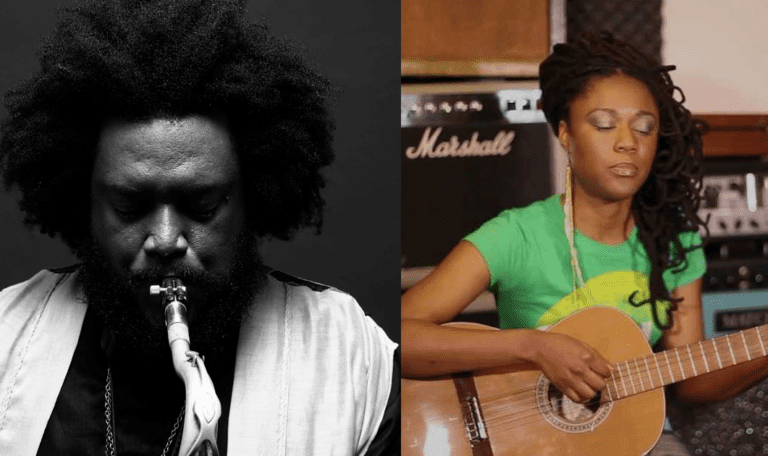
On Tuesday we ran an article featuring two glowing blurbs for Reuben Jackson's latest poetry collection Scattered Clouds. They came from two young stalwarts of the American poetry community: National Book Award winner, Terrance Hayes, and Maryland's own Abdul Ali, author of Trouble Sleeping. In honor of Reuben's devoted following from within the young-blooded poetry vanguard, and for the sake of utilizing his deep insider knowledge of jazz and its many contemporary standouts (Reuben was curator of the Ellington Collection at the Smithsonian for twenty years), we asked Reuben to recommend and comment on three contemporary poets and three contemporary jazz musicians he admires.
The Poets
Tarica June: Tarica June made a big splash a couple of years ago with a piece about growing up in DC among ongoing gentrification called “But Anyway.” I heard that piece, ironically enough, or interestingly enough, on NPR one day and I thought “woah she’s from DC?” I looked at the video and listened to the piece again and then again and I keep going back to it. William Carlos Williams said, “Poetry is news that stays news.” And certainly, gentrification stays new. However, [Gentrification] is not all she writes about, some of her other pieces are just about dealing with being yourself and trying to do the best you can day-to-day; but, I love, as the young’uns say, I love her flow and that there is a real sincerity about her. I also go back to her for inspiration—that’s not saying that I listen to her and then need to go write something, which could happen too—it’s like: when you’re playing sports and you are wiped out, you take some time on the bench and rest and then the water person comes over and gives you Gatorade and then you’re ready to go again. Her work does that for me. In fact, I ran into her on the subway one morning and I was going on and on like a twelve-year-old saying “Oh I just love your work so much.” How she does what she does and what she talks about in her work just means tons to me. It’s the stuff we human beings have dealt with since time immemorial: love, and struggles, and politics. And, as I said before, just being or trying to be yourself in a contentious world.
"I would say, to use old parlance, he has mad skills--he’s sarcastic, patriotic, funny, and romantic."
Kenneth Carroll: [Kenneth Carroll and I] are a kind of peers. We have read together at a lot of places in town, some of which still exist and some of which do not. I would say, to use old parlance, he has mad skills--he’s sarcastic, patriotic, funny, and romantic. Kenneth has this beautiful poem I’d use when I was teaching high school called “DC wishes.” It’s very DC-centric, like the touristy T-shirts that people wear. [Kenneth] manages to put a lot of cliché things [about DC] in the context of this tender, beautiful piece. It’s almost elegiac but also spirit-lifting. It’s the way he mixes the ingredients. The most recent piece I heard by him-- he was reading with his son who’s a DC slam poet champion (there’s something in that genetic pool because he contains the same brilliance as his father) [and the piece] was about the Trump Administration. Now, you know, with any topic one can be wholly sincere yet can veer into the cliché, but [with Kenneth it was a transformation from cliché to sincerity]. It had the same biting wit and linguistic invention that I’ve always loved about him. I say to him, “Dude you’re just blowing me away, give me one of those stanzas, or two of those stanzas for Christmas.” And we have a laugh. I also just love him as an individual.
Brian Gilmore: Once again, Brian is someone who just makes me intrigued by how writers do what they do—like how, to use a cooking metaphor again, do you take ingredients which have been around for a while, like alliteration, and the nuts and bolts [of syntax] like adverbs and gerund phrases and all that, and “make it new” as Ezra Pound would say. Brian is another person who’s not afraid to go and play in the sandbox and come up with new ways of looking at things we as readers and lovers of poetry may or may not have thought about in the first place. I think about his first book, Elvis Presley is Alive and Well and Living in Harlem—the title of the poem itself makes you want to put down whatever the heck it is you’re doing and see what this is about. And the great thing is that it’s not just a tease! You delve into it and find that the content is enticing. I’m one of these people who read poems out loud because, to me, it’s like I’m a wine taster, and the lyrical quality of language, whether its pithy expression or whether you’re like a pianist at the keyboard playing arpeggios, is what I’m tasting for. Gilmore is great at conveying ideas true to what he has to say and taking us places, in many cases, that we need to go.
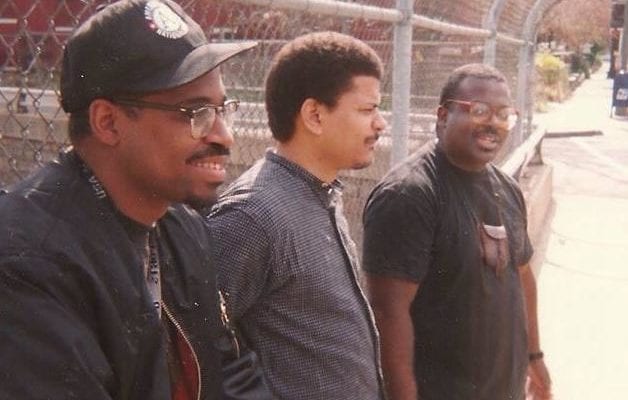
The Musicians
Kamasi Washington: [Kamasi Washington] is a recent musical crush of mine. Just like with poets, there are musicians I feel like I’ve waited my whole life for. Sometimes in these instances, you know you’ve been waiting consciously for [the musician] and at other times you don’t know until it happens. I feel like Kamasi Washington’s The Epic,[ and more specifically] his beautiful version of Claude Debussy's "Clair de Lune," which is like French impressionism meets the urban house party—there’s this dance-like quality while the voices of the trombone and saxophone are just drifting through—is what I have been waiting for. Selfishly speaking, when I first heard this, I found that it was holding both sides of my personality: it’s the 8th street northwest in DC, your neighbors the product of black America and then this love for unabashed romanticism. That version became the theme song for the last two and a half years of my radio station in Vermont.
The other thing is, I think Kamasi has managed to [introduce listeners to the historic ley lines of music while still being original]. If you think in terms of standards, there is this semi-funky version of “Cherokee” on The Epic which ropes listeners into this sense of the continuum of music and jazz music. And just like with the writers, it’s original. There’s a joy and a clear love for music *period* [evident in his music], but it’s like taking something and saying “well here’s this beautiful throw that my family has made I’m going to take it and put it somewhere else in the house in order to see how it looks there.” And now he has to deal with, now that he’s considered a luminary in this musical world, the educated curmudgeons of jazz. Many people in this world you’ll hear say “Oh my gosh we need new, young blood taking the music forward,” then they find it and it’s not what they wanted it to be so they complain. It’s the ultimate paradox. I think Kamasi is inventive and that there is so much love in what he does, and his curiosity, I think, it’s probably selfish [on my part] too, because he’s someone who, [like me], seems to be interested in a lot of different music. And personally, it does my heart good to be endeared to a younger artist who wasn’t made to pick camp A or B as I was growing up. Back in those days they’d put you in a room and there’d be two records, the Beatles and Count Basie, and they’d put a critical gun to your head and say pick one. I always wanted to say “yes, but I love them both.” But you couldn’t do that. Jazz by definition is a genre that borrows from many different aisles of the musical and cultural supermarket, it doesn’t have to be just one thing to get the certified Jazz stamp of approval. To have so many different possible avenues of exploration seems to me like a good problem to have.
"Her recordings are wonderful but to see her, well, I’ve seen her four times over the last few years and I never sleep well afterward—in a good way."
Cecile McLorin Salvant: [Salvant] is someone who, if you’d like a literary comparison, really tools with the canon. She’s also written very entrancing originals, and she can use her voice. She has these very subtle, powerful inflections injected with a lot of technical nuances not used for the sake of showing off but just to convey. Her recordings are wonderful but to see her, well, I’ve seen her four times over the last few years and I never sleep well afterward—in a good way. In the case of her covering some standard by Rodgers and Hart, you may have heard nine or ten or fifty different versions already, but here is someone who still reinvents or, back to Pound, “makes new” this standard that rediscovers some neighborhood in your heart which hasn’t been touched in a while or maybe ever. And there’s no pretense; as Lester Young said, “It’s just straight soul.”
Mary Halvorsen: I think that, because of the current in music today, it’s not unusual for [Mary Halvorsen] to be called, because she tends to rankle purists sometimes, avant-garde. These terms get on my nerves. There’s something in her sound which pulls me in, like how you get in a car with somebody and they say “Let’s take a ride” and you say “Well where are we going,” and they say “just get in.” It’s the same with her: you want to know where she’s driving. She works in a number of different settings and styles, in duo with Bill Frisell, and she worked with Anthony Braxton for a while. To give you an idea she’s covered Beatles tunes, and her and Bill Frisell did a wonderful reading of Debussy's “Girl with the Flaxen Hair.” She works well with a collective or band and she has great solo stuff. I love where she takes me and her courage in being open to choices where she may not fit in with the critical gatekeepers. This is a bigger deal than many of us may realize whether it’s Mary on guitar or William Carlos Williams with poetry back in the day. It doesn’t mean you hate Basie if you listen to Lennon and McCartney, it doesn’t mean that just because you play Debussy you aren’t a jazz musician. Jazz musicians have always been in love with people like Ravel and Debussy and Stravinsky. She’s one of the people with the ears is all. To quote Lester Young again: “That’s the spark of my heart.”
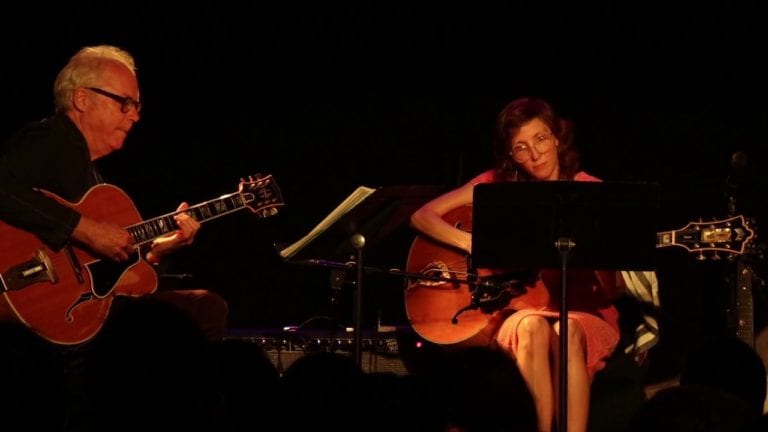
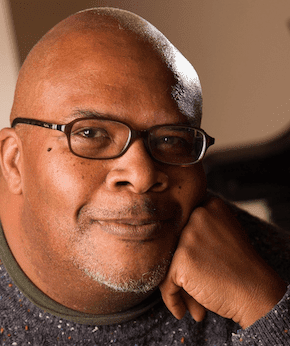
Reuben Jackson served as curator of the Smithsonian’s Duke Ellington Collection in Washington, D.C. for over twenty years. His music reviews have been published in the Washington Post, Washington City Paper, Jazz Times, and on NPR’s “All Things Considered.” Jackson is also an educator and mentor with The Young Writers Project. He taught poetry for 11 years at the Writer’s Center in Bethesda, Maryland and taught high school for two years in Burlington, Vermont. His poems have been published in over 40 anthologies; his first volume is fingering the keys, which Joseph Brodsky picked for the Columbia Book Award. Reuben Jackson is currently an archivist with the University of the District of Columbia’s Felix E. Grant Jazz Archives. From 2013 until 2018, he was host of Friday Night Jazz on Vermont Public Radio.
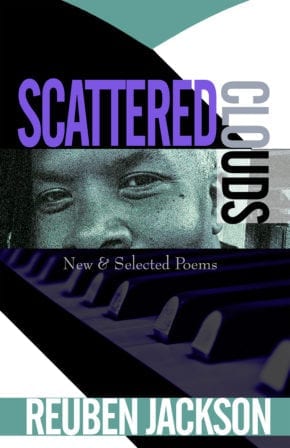
Scattered Clouds is the second poetry collection from jazz scholar, Reuben Jackson. It includes the full text of his first collection, fingering the keys, which Joseph Brodsky selected for the Columbia Award in 1991, and an entire collection of new poetry including his famous Amir poems.